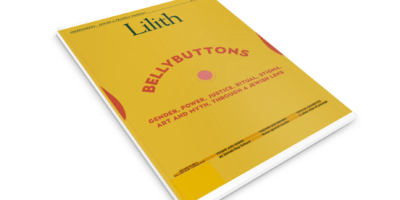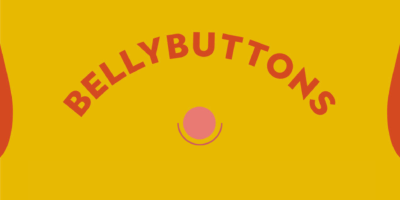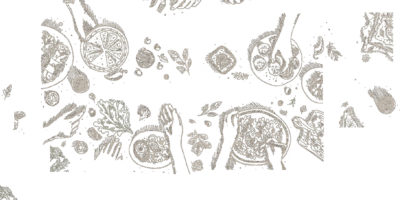
From the Editor: 45 Years of Lilith!
Forty-five years!
Dear Reader, in the fall of 1976 we published Lilith magazine’s first issue. I’ve always believed that milestones of this sort are interesting only to the people very directly involved. The rest of the universe is, appropriately, focused on what’s now and what’s next. And yet, this occasion presents two important opportunities I can’t gloss over.
The first is to use this anniversary as a measuring tool, one crucial topic at a time, to judge what progress the magazine’s writing has both witnessed and helped bring about. As our intrepid interns have been combing through the rich archival content on Lilith’s website, posting links to past articles pointedly relevant to our current preoccupations, I see how many large cultural shifts, both in Jewish life and in the world at large, have been brought about by feminism. Frankly, brought about by the insights and labors of feminists—not magically because of some abstraction called “feminism.” Some of the changes are momentous, some more humble.
When Lilith started, the Reform movement had been ordaining women for only five years. And the Conservative movement was half a decade away from admitting women to rabbinical school. We all know that the presence of acknowledged women spiritual leaders has made a huge and significant difference in how welcoming Judaism has been for all people—male, female, nonbinary. And although they’re still way underrepresented, women are slowly moving into powerful roles in the community, as heads of organizations focusing on social needs, social good and social change.
The late outspoken Senator Bella Abzug once proposed stickers—to affix to a broad range of items, from birth control pills to conference programs featuring women experts—saying “This change brought to you by feminism.” For sure these belong on signs for sexual assault and domestic violence helplines; you see them sometimes in synagogue bathrooms, highway rest stops and college campuses, and they are still urgently needed every day, alas, both to help victims and to remind people about the many forms sexual, physical and psychological assault take. Smaller changes deserve stickers too. Like the teachers’ manual at an Orthodox day school that instructs faculty to address their classes as “Students,’’ not “Girls.”
You’re right if you’re thinking that these changes, helpful as they are, elide some core problems. So let’s look at the investigative reports Lilith has published about rabbis’ sexual misconduct, and the enablers who made such predation possible; this reporting became a powerful precursor to the of emergence #MeToo narratives in Jewish organizations. And Lilith’s decades- long groundbreaking analyses of the Jewish stake in abortion rights paved the way for the coalition of Jewish organizations now battling the unjust and unconstitutional threats to reproductive justice in the United States right now. Lilith’s first-person writing by LGBTQ Jews first appeared more than 40 years ago.
And our writing about money has included everything from growing up Jewish and poor to owning one’s power as a female philanthropist, from struggling for pay equity in Jewish workplaces to shaping how women employers pay the workers they hire at home. Lilith’s staff and writers are always striving to enlarge the space, opening the tent flaps wider and wider, so that what appears in the magazine’s pages and pixels introduces you to people and traditions and rituals and political views that are like—and often very unlike— your own. Diversity has always been a norm Lilith strives for.
In keeping with this, at age 45 Lilith is launching a special program to repair some of the misogyny that has limited many women around the time they reach the age of this feisty, energetic feminist magazine, suggesting that their insights and experiences aren’t of interest to the reading public. Not so! Lilith is now drawing in, encouraging, instructing and mentoring aspiring or emerging Jewish women writers over 40. We’re calling this unique project The New Forty, and it’s a project that will bring together, virtually, a first cohort of 8-10 such writers—across a wide range of background, geography, ability and ethnicity—for webinars, peer support and coaching, so that their stories, too, can appear in Lilith. Visit Lilith.org to learn more, and watch these pages and Lilith’s robust website to read what these emerging writers produce over the next year.
And so the second opportunity that Lilith’s 45th anniversary offers is a chance to say a very deep thank you—to you, Reader, and to many significant others as well. All of this good work— and good reading—is itself nurtured by a cheering section of Lilith’s board and supporters. You see on the opposite page the names of people whose generous gifts of good ideas and financial resources make Lilith’s writing possible. Without them the words you’re reading now, and the ones still to come, would just be ruminations lodged in creative minds.
It’s especially hard for people raised female to own whatever power we have, hard to tell ourselves (never mind telling others!) that our labors have been worthwhile. So I want to state, shyly, that I feel huge gratitude to Lilith’s staff and writers and artists and supporters and subscribers and readers for having made the publication of 45 years’ worth of content a worthwhile pleasure to produce.
And now…on to the next issue, and the ones after that too.





